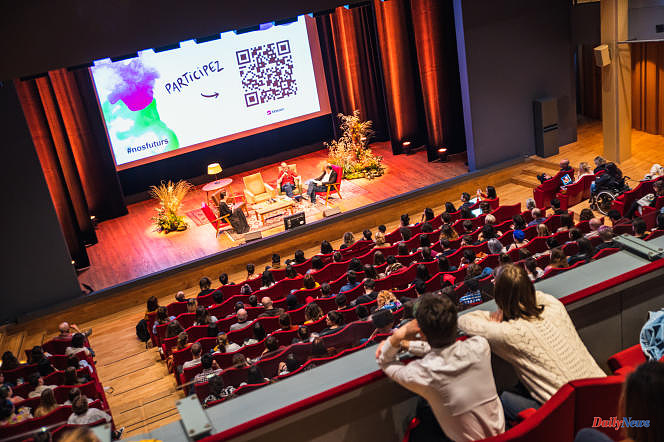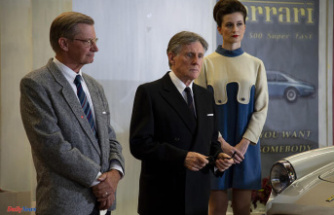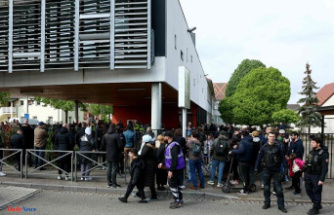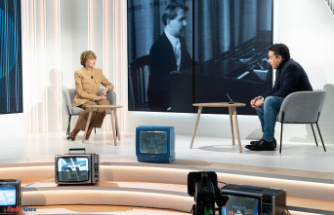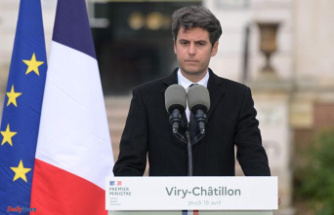The case seemed settled since the early 1990s, when the sociologist Annick Percheron formulated the idea that young people formed a "magnifying mirror" of the positions of society. Since then, election after election, the hypothesis has been confirmed: the political behavior of young people underlines and amplifies that of its elders, in terms of voting and abstention. But this mechanism has been combined, for several years, with forms of autonomous mobilization, sometimes radical, which seem to reverse the dynamic: whether it is a question of climate change, sexuality, feminism, food, relationship to work or more cultural practices, young people are posing as scouts of social change and directly colliding with the values or habits of previous generations.
It is to give him the floor and to confront the points of view between generations that Le Monde and Les Champs libre have created the festival Our futures, the second edition of which takes place from March 21 to 26 in Rennes. This collaboration takes multiple forms again this year: more than sixty workshops, demonstrations, feedback, concerts, exhibitions and conferences will punctuate the festival, which will embrace themes as varied as women's freedom, coding, food, sport, inclusion, discrimination, climate emergency, town planning, oral expression, independence of the press, representations of the future, biodiversity... This effervescence is the result of work carried out by two hundred young people from Rennes − middle and high school students in general, technological, vocational and agricultural courses, university and high school students, student actors from the Conservatoire, members of associations, etc.
Among them, those from Sciences Po Rennes participated alongside Le Monde in the design of five conference-debates. We will ask ourselves on Thursday, March 23, how to "reconnect" on ecological emergency issues with researcher Wolfgang Cramer, Anne-Iris Espinat Dief, citizen supporting Last renovation in Rennes, lawyer and former minister Corinne Lepage and Paloma Moritz, journalist-director at Blast. Friday, March 24, Léa Falco, from the collective For an ecological awakening, Dominique Méda, professor of sociology at Dauphine-PSL University and columnist at Le Monde (last book published: These were the Macron years, Flammarion, 2022), Lucie Pinson , from the NGO Reclaim Finance and Yannick Servant, co-founder of the Business Convention for the Climate, will discuss the theme: "Employment: how to find your place, between conviction and reality?" ".
Two conferences will question the intimate, Saturday, March 25. A first on violence against women, with Ghada Hatem-Gantzer, head doctor of the Maison des femmes de Saint-Denis (93), Elisabeth Lusset, historian, Mathieu Palain, author of Our fathers, our brothers, our friends ( Les Arènes, 2023), and Isabelle Steyer, lawyer, specialist in the rights of women and children who are victims of physical violence. Our guests will also question relationships. “Sexuality, Friendship, Marriage: Do We Need to Rethink Intimacy to Break Free from Patriarchy? ask Camille Aumont-Carnel, creator of the Instagram account @jemenbatsleclito, Lauren Bastide, journalist, creator of the "La Poudre" podcast, Isabelle Clair, sociologist (EHESS), Thomas Messias, creator of the "Mansplaining" podcast and Louise Morel, author of How to become a lesbian in ten steps (Out of reach, 2022).
Finally, on Sunday 26, Fabien Namias, Deputy CEO of LCI, Célia Laborie, journalist and author of the survey "Depressed or upset by the news, these French people who have stopped getting information" for Le Monde, Bruno Patino, President d'Arte and professor at Sciences Po, author of Inquire, Why Good? (La Martinière, 2023) and Claire Sécail, media historian, will examine how media violence affects us in a voracious media landscape of "clash, news binge and anxiety-provoking topics".
These five meetings will be available from April 3 in the form of a podcast on Lemonde.fr and on listening platforms. They will also be the subject of three television programs produced with TVR.

